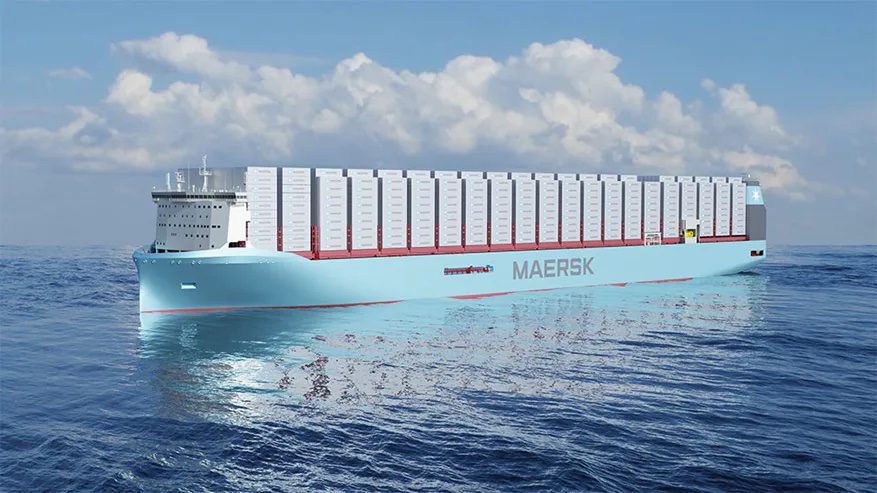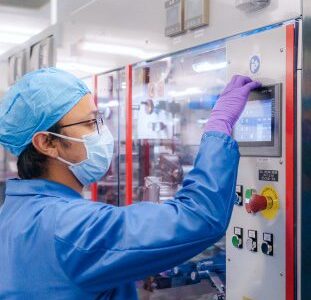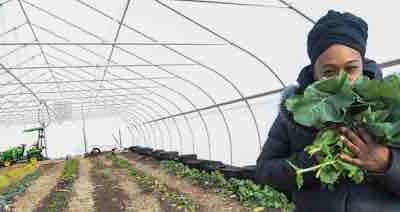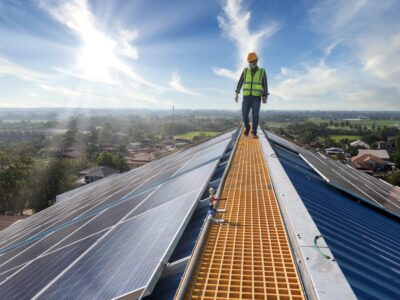Transoceanic shipping is one industry facing an uphill battle in the quest for carbon neutrality. Container ships and tankers still need oil-based energy to journey across such vast open water.
While traditional marine oil might be relied on for some time, biofuel is emerging as an emission-free fuel, and new green fleets will make shipping much more sustainable. The largest shipping company in the world, Maersk, already plans to build up and expand its green-powered cargo carrier lines.
On Oct. 5, 2022, the company announced it would purchase six more green-methanol-powered ships from Hyundai Heavy, as the Danish shipping line plans to flip the script on transoceanic logistics. Costing around $1.14 billion to make this green transition, the company is hoping these new green-fuel container vessels will edge them closer to reaching carbon neutrality by 2040. The deal brings Maersk’s number to 19, and more biofuel-powered ships could still make their way into the freight liners’ fleets.
The estimates for carbon emission reduction from this new purchase are quite impressive. In light of the order for the first 12 green-methanol ships, Maersk calculated that biofuel power would offset 4.5% of carbon emissions. With the expanded fleet, that number is likely in the range of 8 to 12%. A total of 2.3 million tons of carbon is expected to be reduced, attractive numbers for an industry still adapting to broad-scale sustainable fuel sources.
Currently, transoceanic shipping accounts for 3% of all global emissions. With more than 700 vessels in operation, Maersk needs to get the ball rolling on more clean-fuel technologies for ships.
“Green methanol is the best scalable green fuel solution for this decade, and we are excited to see several other shipowners choosing this path,” said Palle Laursen, Maersk’s chief fleet and technical officer. “It adds further momentum to the rapid scaling of availability needed to bring down the premium on green methanol and accelerate the evolution of climate-neutral shipping.”
In addition to being emission-free, the Hyundai Heavy ships will be more efficient for loading and unloading. Unlike traditional models, these vessels will have crew quarters on the front of the bow compared to the stern. This change is designed to increase deck capacity. It’s estimated the deck will carry up to 17,000 containers.
The funnel, or smokestack, will also be moved to make offloading cargo more time-efficient. Carrying more load than traditional container vessels will help ease supply chain issues caused by global conflicts and natural disasters.
While Maersk anticipates the green methanol fuel could power these ships to make an Asia-Europe roundtrip without refueling, they are preparing them with a dual-fuel engine. Essentially, green methanol can replace traditional oil, but a backup will be available if the clean sources run out.
The company says it will use low-sulfur fuels to keep emissions low even if some of these vessels are forced to use fossil fuel power. Regardless, this fleet expansion is a testament to how serious international shipping liners are about lowering their carbon footprint.
“Our customers are looking to us to decarbonize their supply chains, and these six vessels able to operate on green methanol will further accelerate the efforts to offer our customers climate-neutral transport,” said Henriette Hallberg Thygesen, CEO of fleet and strategic brands at Maersk. All 19 Hyundai Heavy ships will reach Maersk’s docks by 2025.





